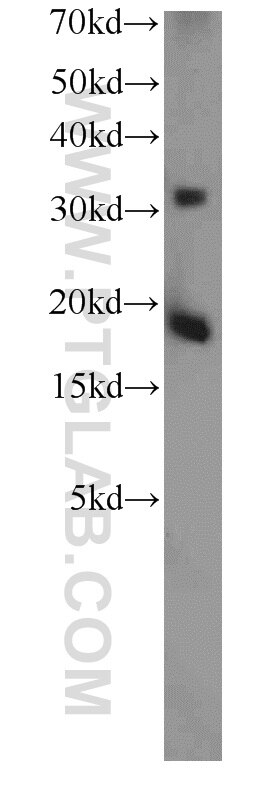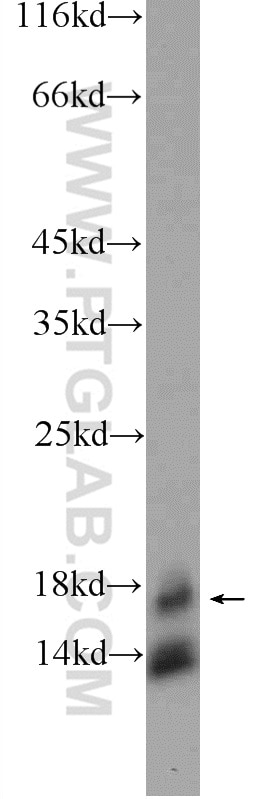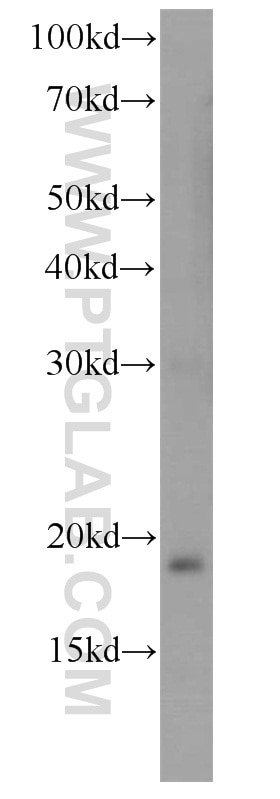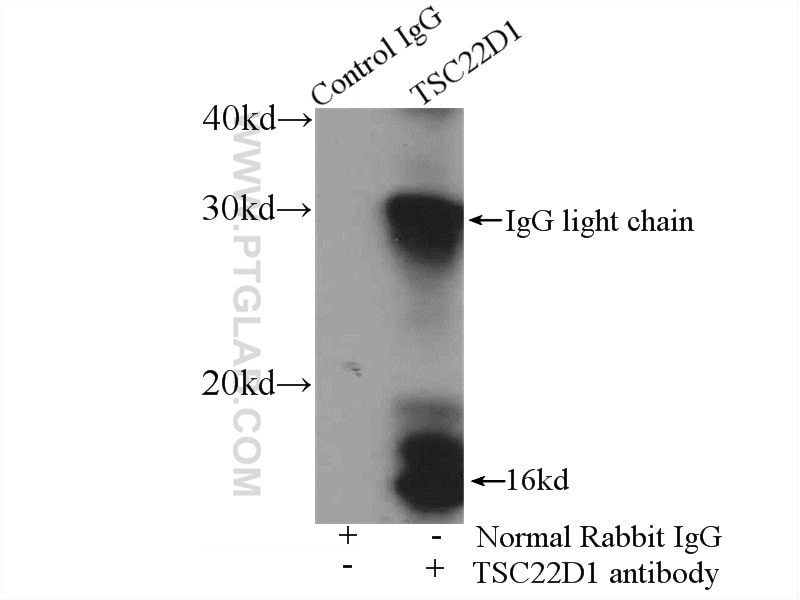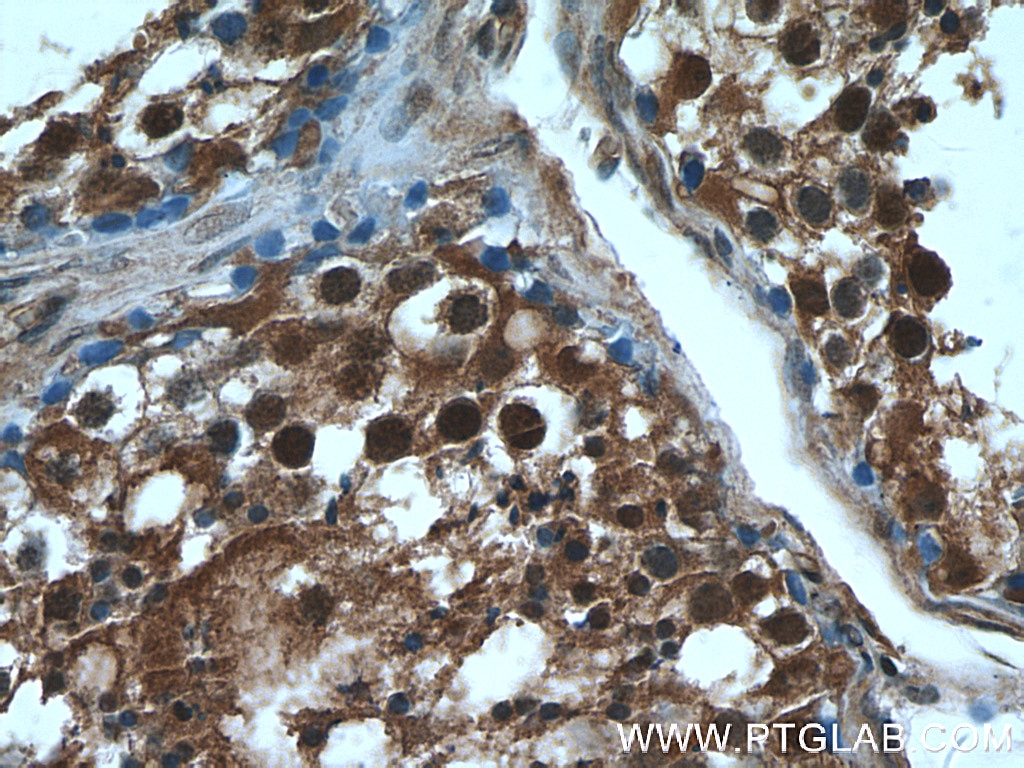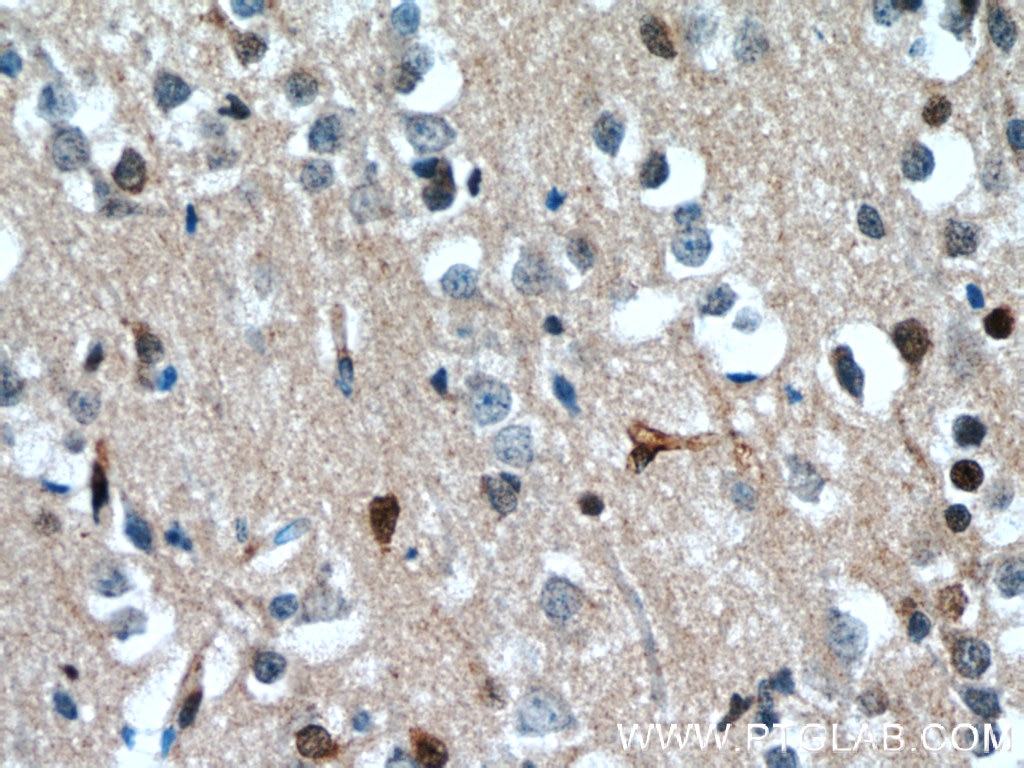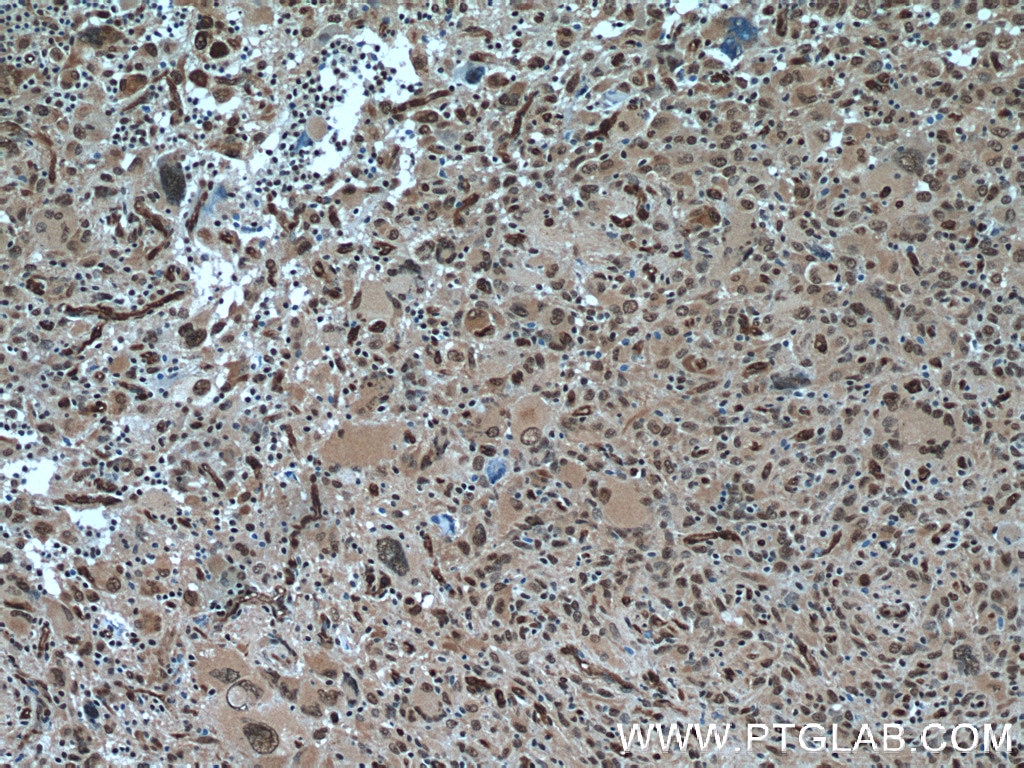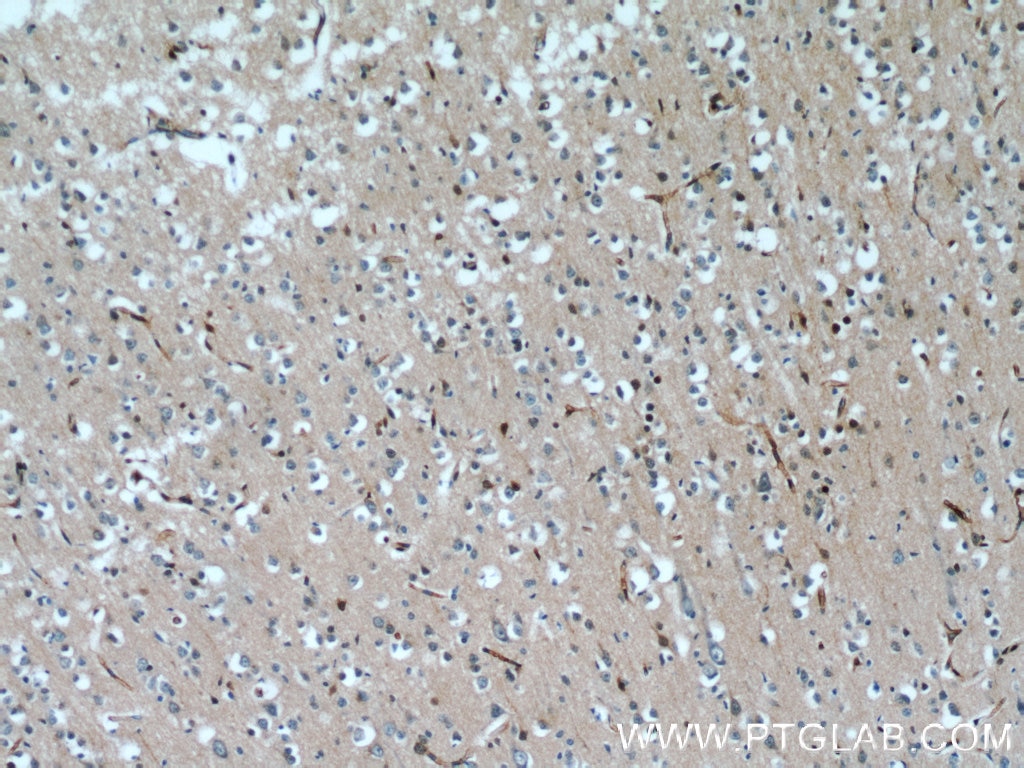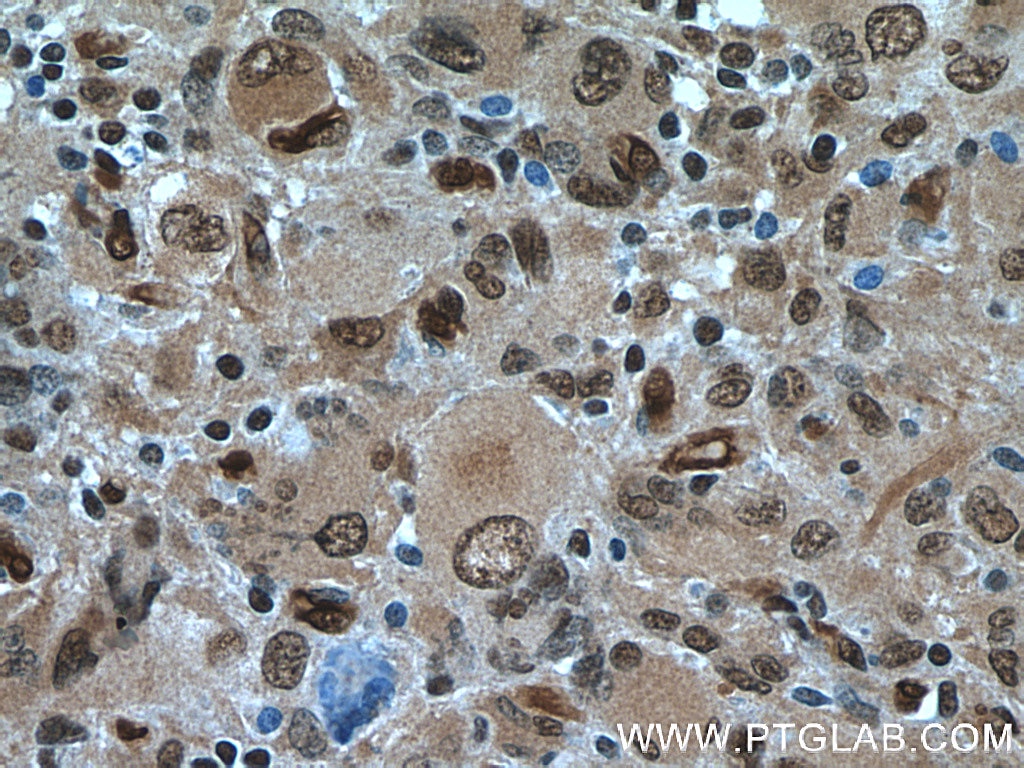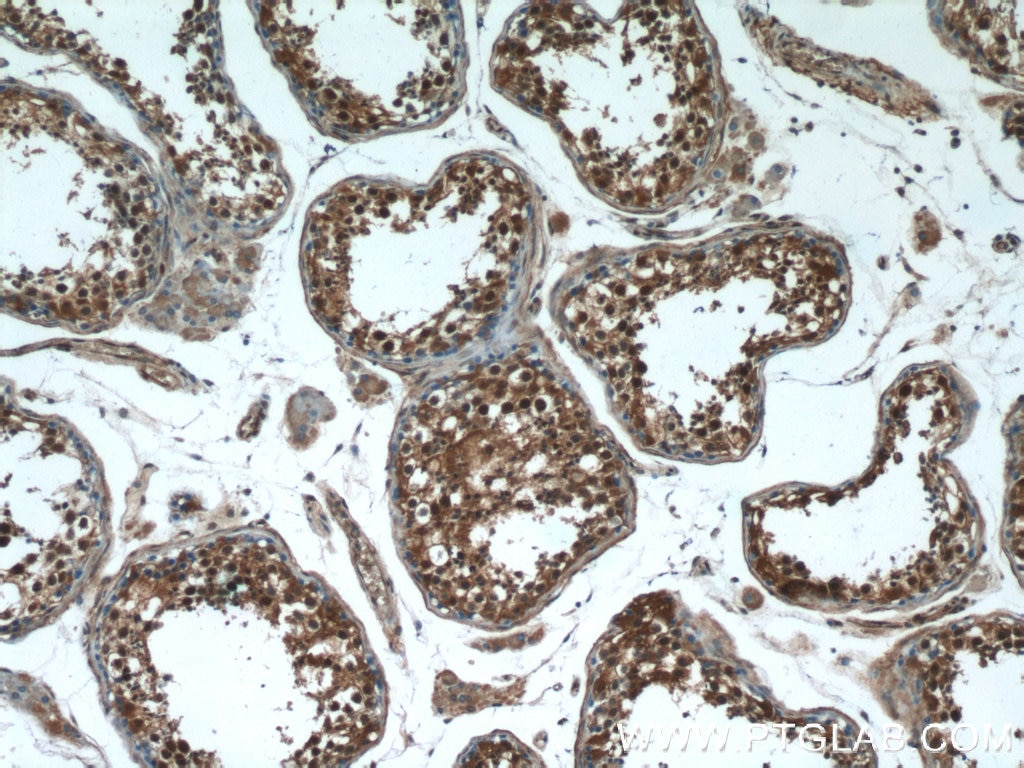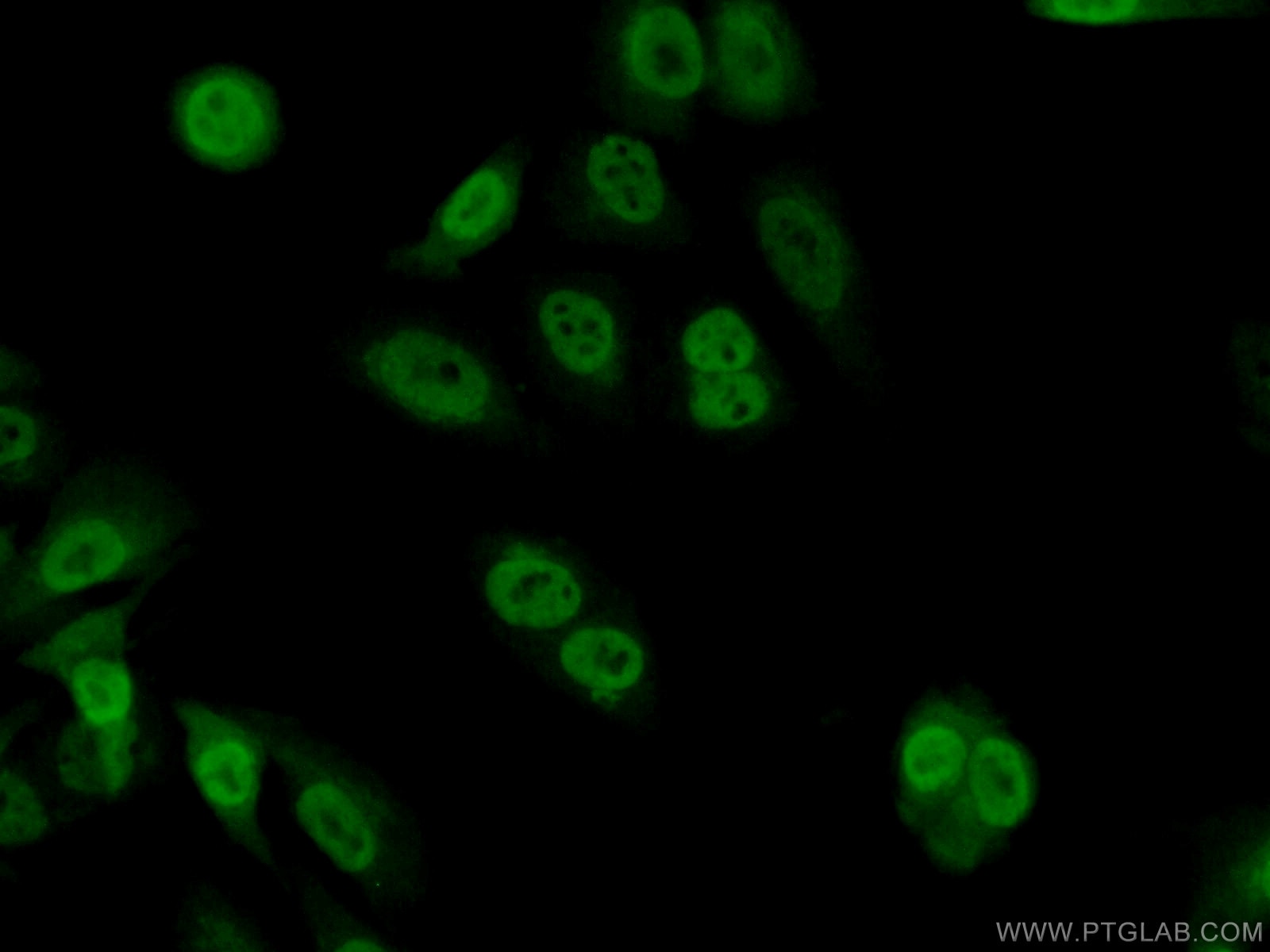- Featured Product
- KD/KO Validated
TSC22D1 Polyclonal antibody
TSC22D1 Polyclonal Antibody for IF, IHC, IP, WB, ELISA
Host / Isotype
Rabbit / IgG
Reactivity
human, rat and More (1)
Applications
WB, IP, IHC, IF, ELISA
Conjugate
Unconjugated
Cat no : 10214-1-Ig
Synonyms
Validation Data Gallery
Tested Applications
| Positive WB detected in | human brain tissue, A549 cells, rat brain tissue |
| Positive IP detected in | rat brain tissue |
| Positive IHC detected in | human brain tissue, human testis tissue Note: suggested antigen retrieval with TE buffer pH 9.0; (*) Alternatively, antigen retrieval may be performed with citrate buffer pH 6.0 |
| Positive IF detected in | A549 cells |
Recommended dilution
| Application | Dilution |
|---|---|
| Western Blot (WB) | WB : 1:500-1:1000 |
| Immunoprecipitation (IP) | IP : 0.5-4.0 ug for 1.0-3.0 mg of total protein lysate |
| Immunohistochemistry (IHC) | IHC : 1:20-1:200 |
| Immunofluorescence (IF) | IF : 1:50-1:500 |
| It is recommended that this reagent should be titrated in each testing system to obtain optimal results. | |
| Sample-dependent, Check data in validation data gallery. | |
Published Applications
| KD/KO | See 4 publications below |
| WB | See 9 publications below |
| IHC | See 2 publications below |
| IF | See 2 publications below |
| IP | See 2 publications below |
Product Information
10214-1-Ig targets TSC22D1 in WB, IP, IHC, IF, ELISA applications and shows reactivity with human, rat samples.
| Tested Reactivity | human, rat |
| Cited Reactivity | human, mouse |
| Host / Isotype | Rabbit / IgG |
| Class | Polyclonal |
| Type | Antibody |
| Immunogen | TSC22D1 fusion protein Ag0287 |
| Full Name | TSC22 domain family, member 1 |
| Calculated Molecular Weight | 16 kDa |
| Observed Molecular Weight | 16 kDa |
| GenBank Accession Number | BC000456 |
| Gene Symbol | TSC22D1 |
| Gene ID (NCBI) | 8848 |
| RRID | AB_2272193 |
| Conjugate | Unconjugated |
| Form | Liquid |
| Purification Method | Protein A purification |
| Storage Buffer | PBS with 0.02% sodium azide and 50% glycerol pH 7.3. |
| Storage Conditions | Store at -20°C. Stable for one year after shipment. Aliquoting is unnecessary for -20oC storage. 20ul sizes contain 0.1% BSA. |
Background Information
TSC22 domain family 1, transforming growth factor beta 1 induced transcript 4, (TSC22D1, synonyms: TSC22, TGFB1I4, MGC17597) is a member of a family of leucine zipper containing transcription factors with repressor activity and belongs to the large family of early response genes. TSC-22 regulates cell growth and differentiation, and cell death. Leucine zipper structure of TSC22 inhibits the anchorage independent growth of cancer cells. TSC-22 is also an important downstream component of peroxisome proliferator-activated receptor (PPAR) and TGF-beta signaling during intestinal epithelial cell differentiation. This antibody is a rabbit polyclonal antibody raised against an internal region of human TSC22D1.
Protocols
| Product Specific Protocols | |
|---|---|
| WB protocol for TSC22D1 antibody 10214-1-Ig | Download protocol |
| IHC protocol for TSC22D1 antibody 10214-1-Ig | Download protocol |
| IF protocol for TSC22D1 antibody 10214-1-Ig | Download protocol |
| IP protocol for TSC22D1 antibody 10214-1-Ig | Download protocol |
| Standard Protocols | |
|---|---|
| Click here to view our Standard Protocols |
Publications
| Species | Application | Title |
|---|---|---|
Cell Death Differ TSC-22D1 isoforms have opposing roles in mammary epithelial cell survival. | ||
Clin Cancer Res Transforming Growth Factor-{beta}-Stimulated Clone-22 Is an Androgen-Regulated Gene That Enhances Apoptosis in Prostate Cancer following Insulin-Like Growth Factor-I Receptor Inhibition.
| ||
Int J Mol Sci Identification of Binding Proteins for TSC22D1 Family Proteins Using Mass Spectrometry. | ||
FEBS J Multiple TSC22D4 iso-/phospho-glycoforms display idiosyncratic subcellular localizations and interacting protein partners. | ||
Am J Physiol Heart Circ Physiol Transforming growth factor-beta1 regulation of C-type natriuretic peptide expression in human vascular smooth muscle cells: dependence on TSC22D1. | ||
Biochem Biophys Res Commun Low levels of TSC22 enhance tumorigenesis by inducing cell proliferation in colorectal cancer. |
